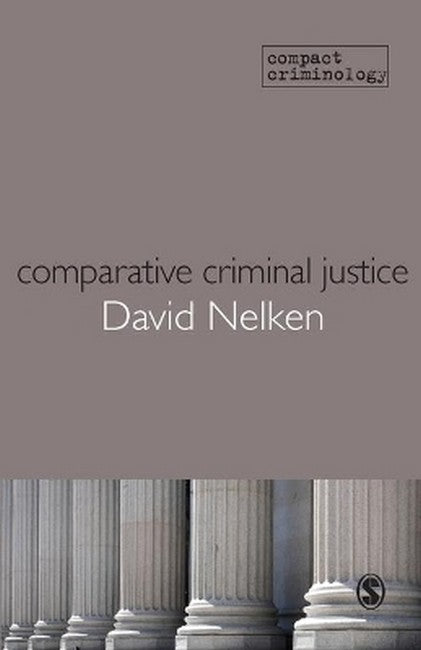David Nelken is Professor of Sociology and Director of the Institute of Sociology at the University of Macerata in Italy. He is also visiting Professor of Law (Criminology) at University College London where he was previously Reader in Law. His book The Limits of the Legal Process (Academic Press, 1983) gained an American Sociological Association Distinguished Scholar Award. He is general editor of the International Library of Criminology and Criminal Justice (Dartmouth) for whom he is editing a volume on White-Collar Crime. He will also shortly be publishing a book with N Passas on Controlling EC Fraud and for Pluto Press a book entitled Law's Truth. CONTRIBUTORS OUTSIDE WESTERN HEMISPHERE Nelken: Futures of Criminology Stanley Cohen Hebrew University Jerusalem Wayne Morrison Queen Mary and Westfield College, London Massimo Pavarini University of BolognaPeter Rush University of Lancaster Alison Young University of Lancaster
Request Academic Copy
Please copy the ISBN for submitting review copy form
Description
Changing Paradigms Why Compare? Just Comparison Ways of Making Sense Explaining too Much? The Challenge of the Global Whose Sense?
An accessible, engaging and sophisticated introduction to the challenges of truly comparative research on crime, criminal justice and penal policy-making. This is a gem of a book, that should help to place comparative studies where they belong, at the heart of the criminological enterprise Paul Roberts University of Nottingham Comparative scholarship is riven with carelessness, and this primer shows us how to do it right. Both beginning students and advanced scholars alike have much to gain by a patiently working through this book. The book is not just for criminologists; it can be read with profit by anthropologists, political scientists, sociologists, legal scholars--indeed anyone who engages in comparative analysis on any topic. In short, all of us Malcolm M. Feeley University of California at Berkeley , This succinct yet sophisticated, learned and challenging tour de force highlights the pitfalls and problems of comparative research, but the even greater perils of ignoring the diversity of cultural approaches to crime and criminal justice. A definitive analysis by the leading scholar in the field Robert Reiner, Professor of Criminology, Law Department, London School of Economics Comparative Criminal Justice provides a challenging perspective on comparative criminological enquiry. It is thought provoking throughout, particularly for the comparative researcher but also for criminologists looking to find broader underpinnings of their work. [Nelken] carefully sets comparative research as not a fringe endeavour but as part and parcel of criminology... The invitation to engage in comparative research that I perceive in Nelken's book is therefore extended well beyond those who think of themselves as comparatists but to criminology as a whole International Journal of Law, Crime and Justice ...the book is not just a stimulating commentary on comparative research but also an introduction to the now impressive oeuvre of a productive and innovative thinker Tom Daems University of Leuven in Panopticon The book is an extremely learned discussion of the goals, the assumptions, the implications and the methods of comparing criminal justice systems. The arguments are enriched by a number of examples drawn from the literature, with a particular attention to recent studies...Overall, the book is extremely enriching and inspiring. The author poses a number of extremely relevant questions and provides the reader with clues and suggestions for finding the most appropriate answers European Journal on Criminal Policy and Research David Nelken... presents a basic programme for a reflexive approach to research on criminal justice that is sensitive to the differing cultural backgrounds and framings of national-state criminal justice systems....Being able to question ones-self and becoming aware of one's own culturally shaped starting points - which at first glance appears self-evident - has not yet succeeded in gaining the status of a common practice in a comparative criminology dominated by Anglo- Saxon scholars. Probably Nelken owes his critical awareness to his many years of experience working as a British criminologist in Italy. The more readers can benefit from this, the more optimistic we may allow ourselves to be about the prospects of the discipline itself Criminal Law Forum David Nelken asks important questions of, and offers helpful insights into, the enterprise of comparative legal studies. ..will serve as a useful text, at both the graduate and undergraduate levels, for courses in criminology, law and society, legal studies, sociology, and comparative law James NolanLaw and Society Review -- UK Reviewsall

